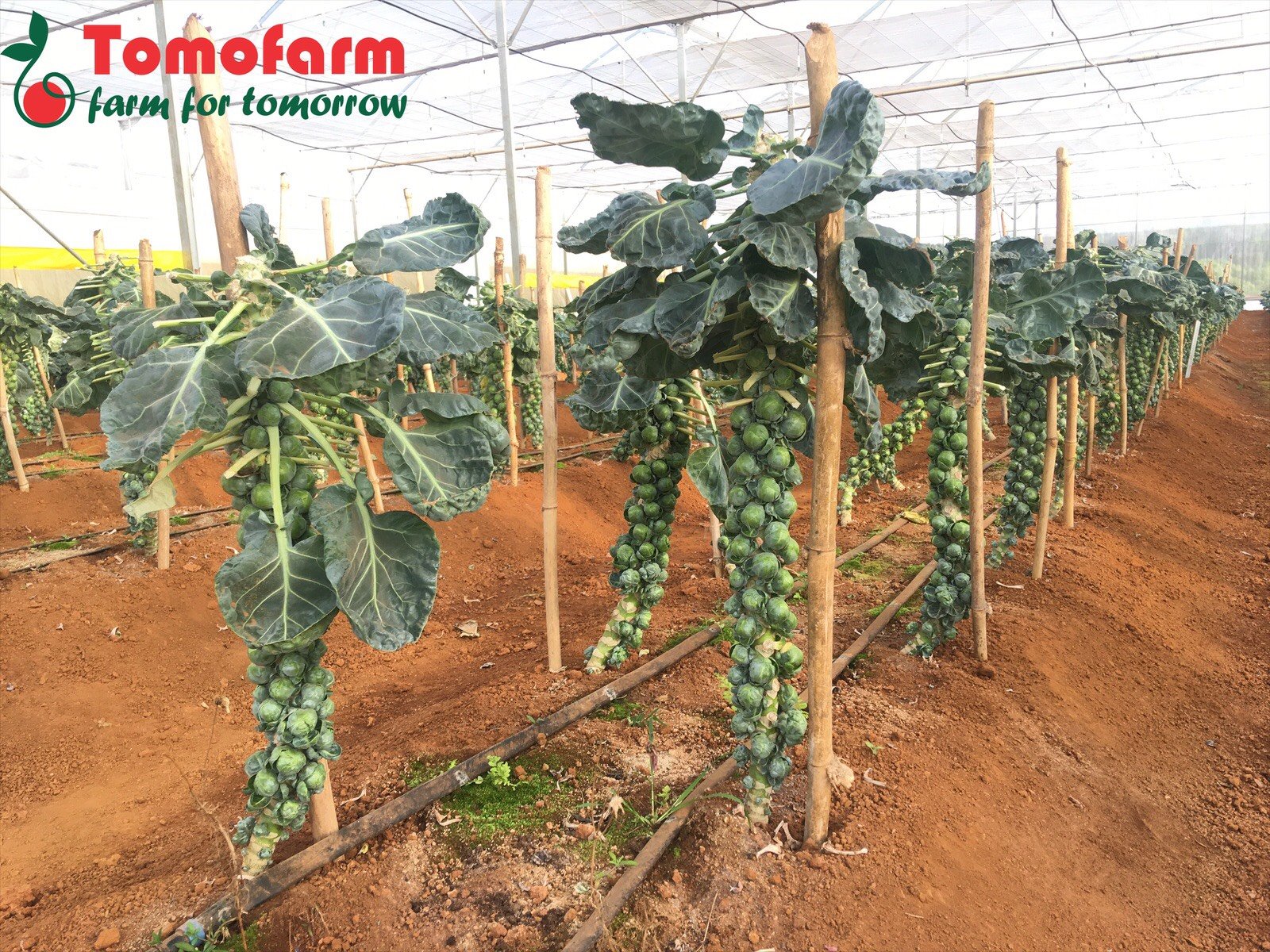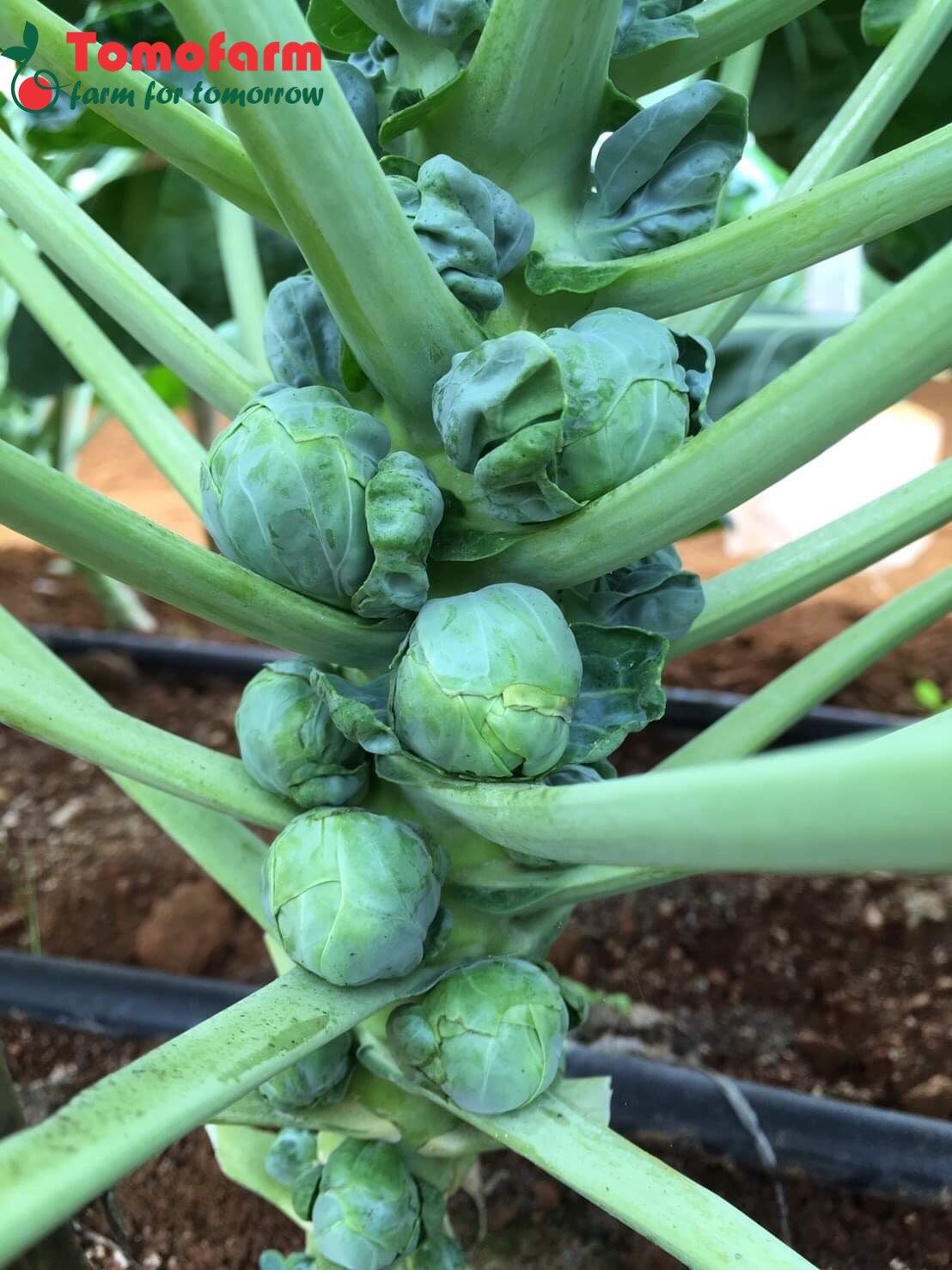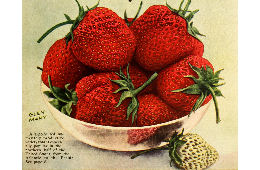
The history of Brussels sprouts started in the Mediterranean basin with the ancestors of our current cabbages. They were cultivated by the Romans, far in the south of Brussels, the capital of Belgium. They were not adopted by the Belgians until the 13th century, even if the first written traces did not appear before 1587.

In the 14th century, market gardening developed outside the walls of the city of Brussels at such point that all the neighboring lands were used and the place was still lacking to have a sufficient production to satisfy the population of the capital. It was in 1685 that a new species of hybrid cabbage was created to grow vertically in order to optimize the cultivable space.
The success was immediate and the inhabitants of the commune of Saint-Gilles, where the new species was created, gained the nickname “the cabbage cutters” (Kuulkappers).
It is true that their cultivation is fast and easy: on a plant of about one meter that can be harvested twice a year after only 90 days of growth, the harvest is done gradually (generally fifteen buds by fifteen starting from the bottom) for a total of 75 sprouts of about 3cm in diameter.

After Brussels, they became very popular in the Netherlands before spreading throughout northern Europe during the 19th century under the name of the city from which they were imported.
In the 1990’s, Hans van Doorn, a Dutch scientist, identified what molecule made the sprouts bitter, allowing to increase considerably its popularity by modifying some species to lower their bitterness.
Today these buds are still very appreciated for their concentrated taste, alongside with their nutritional values which allows to have very good accompaniments marrying with all types of dishes.






